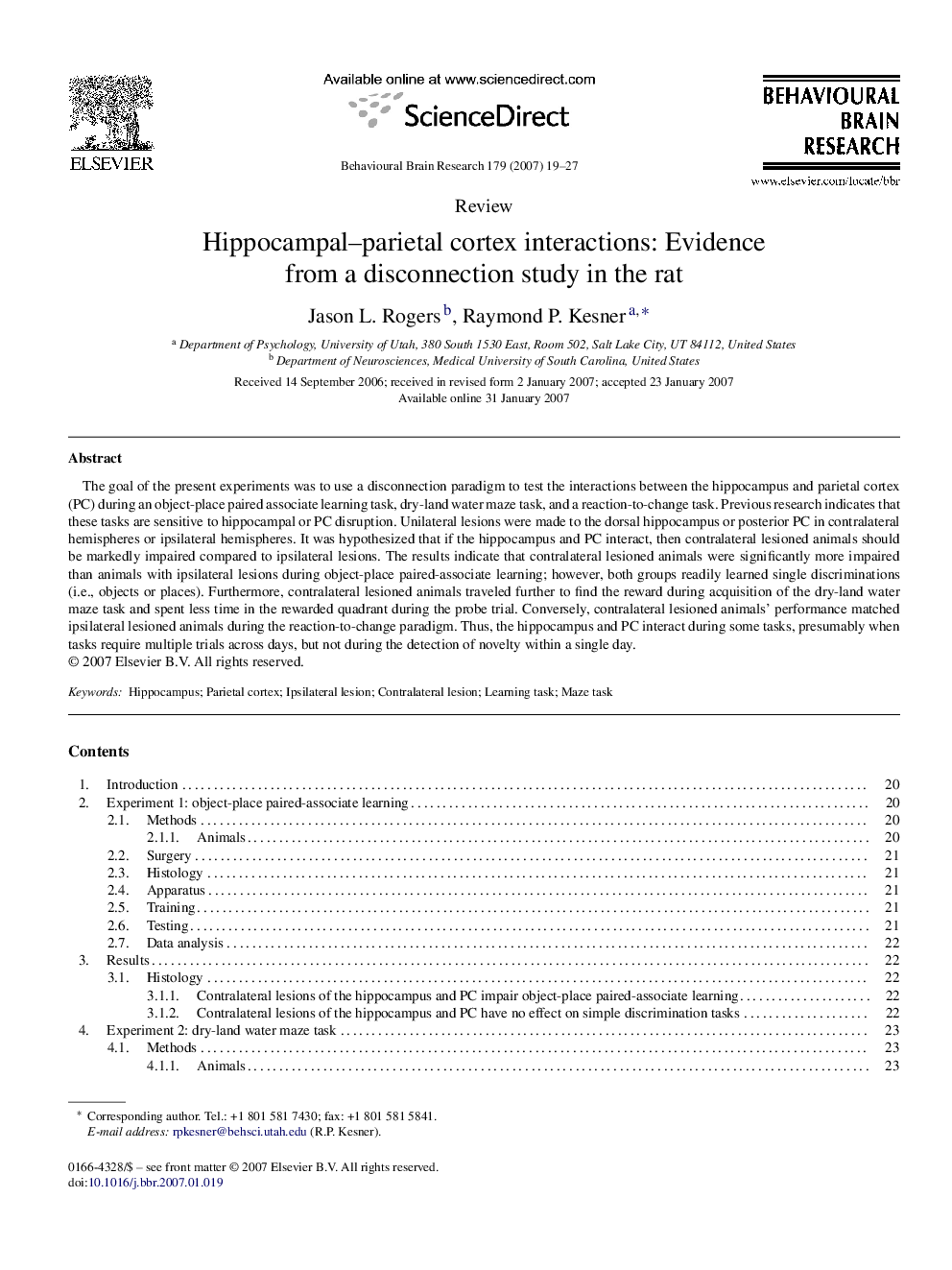| Article ID | Journal | Published Year | Pages | File Type |
|---|---|---|---|---|
| 4315767 | Behavioural Brain Research | 2007 | 9 Pages |
The goal of the present experiments was to use a disconnection paradigm to test the interactions between the hippocampus and parietal cortex (PC) during an object-place paired associate learning task, dry-land water maze task, and a reaction-to-change task. Previous research indicates that these tasks are sensitive to hippocampal or PC disruption. Unilateral lesions were made to the dorsal hippocampus or posterior PC in contralateral hemispheres or ipsilateral hemispheres. It was hypothesized that if the hippocampus and PC interact, then contralateral lesioned animals should be markedly impaired compared to ipsilateral lesions. The results indicate that contralateral lesioned animals were significantly more impaired than animals with ipsilateral lesions during object-place paired-associate learning; however, both groups readily learned single discriminations (i.e., objects or places). Furthermore, contralateral lesioned animals traveled further to find the reward during acquisition of the dry-land water maze task and spent less time in the rewarded quadrant during the probe trial. Conversely, contralateral lesioned animals’ performance matched ipsilateral lesioned animals during the reaction-to-change paradigm. Thus, the hippocampus and PC interact during some tasks, presumably when tasks require multiple trials across days, but not during the detection of novelty within a single day.
